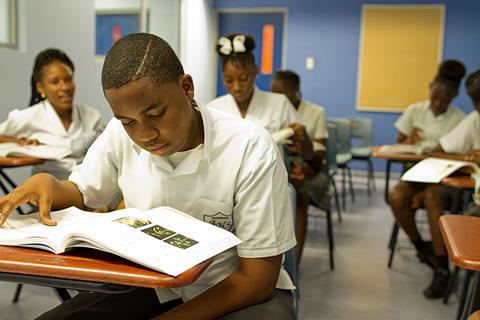Students who are faced with a text in class and asked to read it and answer questions often find the task difficult.

Once they have had some disappointing attempts at this kind of reading they lose motivation and it becomes even harder for a teacher to get them involved in the task and eventually successful. We want the classroom task to help students develop the reading skill as well as other skills like speaking, writing and language areas like vocabulary and grammar and to motivate and challenge them.
We rarely read anything without having some ideas about what we will discover in the text, even if we are wrong. If we read a newspaper article, we may already be following an unfolding story or already be interested in the topic. If we read a story, we have already got a framework of what that story will contain – if it’s a science fiction story we will be expecting strange new worlds, aliens, spacemen, star ships etc. It is very hard to read something without having these ideas already in our minds.
- The students must be prepared for the text.
- They must have a task set before reading otherwise their reading will have no aim – we do not read without an aim: we want to find out some specific information e.g. did our favourite footballer score any of the goals in last night’s match? Or we may want to get some general information about a topic.
Before reading
Don’t let the students see the text yet. Get them thinking about the topic of the text – use one of the ideas below:
- Tell the class that today they are going to read a text about, for example, crime in America. Ask them what ideas they have on this topic and if they think crimes in their own country are similar or different.
For a class whose English level is not very high encourage the students to come up with words or phrases and write them on the board. If all the students do not know these words or phrases, this is a great opportunity for students to teach each other new vocabulary.
Higher level students could perhaps have a discussion in groups on the topic or do a similar brainstormingto the one shown in groups on large pieces of paper collecting vocabulary and ideas.murder drugs police with guns
death penalty dangerous streets gangs
mugging terrorists
- Prediction is a great way to get students involved in a text and to challenge them to produce imaginative, rich English. Have a look at the story and activities from Storytelling by Zaro and Salaberri.
- Use pictures on the topic you are going to read to stimulate vocabulary or ideas.
Try this game:
Find a picture on the topic and if possible copy it onto an overhead transparency. Cover the picture entirely and gradually reveal the picture by moving a piece of paper covering it away gradually. As you do this keep asking the students what they see. Accept all possibilities and don’t tell them if they are right. This will give them confidence to keep making suggestions.
Students will also be using lots of varied vocabulary and also using their imaginations. When I do this, students become focussed on the picture, enjoy the challenge of trying to work out what is happening in the picture and enjoy seeing the picture revealed bit by bit. - Jumbled headlines / titles:
If you are going to read a newspaper article, take the headline and jumble it up and ask the students to work in small groups and see which group can put the headline back in the correct order. For example:
cooked life for prison sent wife man to who
The answer is: Man who cooked wife sent to prison for life (a real newspaper headline, which some of you may find gruesome but all the teen students I have done it with have liked!)
Doing the activity makes students think about possible meanings and already they are beginning to wonder about the story. This could be done with story titles too, that are longer than 5 words.
Other ideas to help you encourage your students to read in class
Teenagers: Reading 2: The reading task

No comments yet